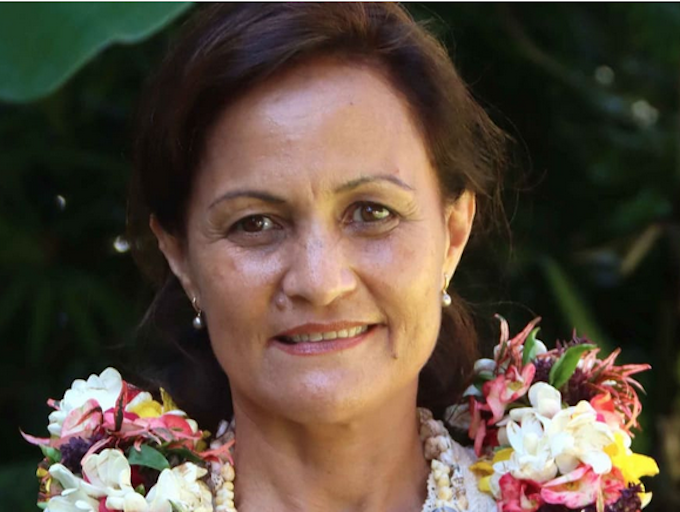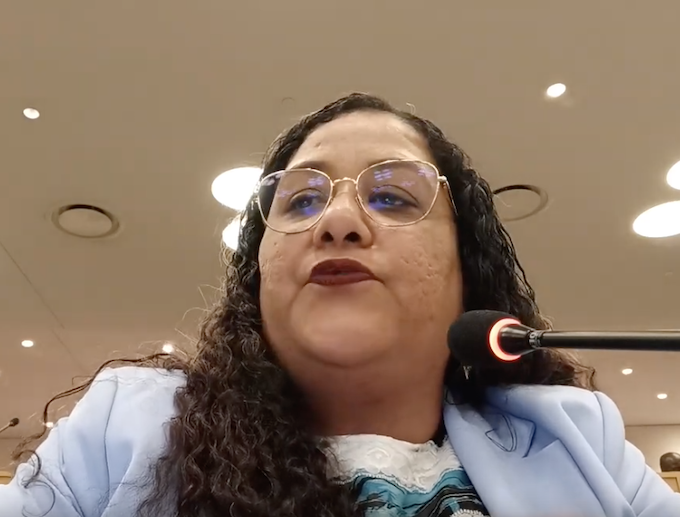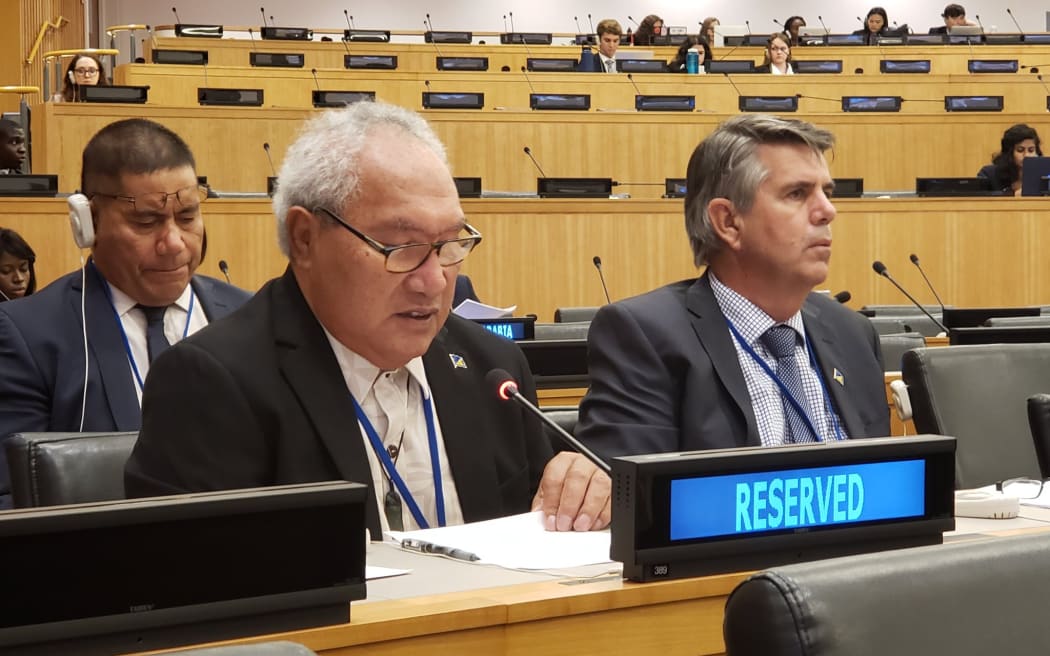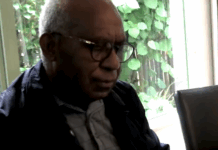
By Finau Fonua, RNZ Pacific journalist
France’s grip on its overseas territories in the Pacific may be waning, with pro-independence delegates now claiming to have the support of the majority of their indigenous people in their territories.
The delegates from New Caledonia and French Polynesia spoke during talks at the UN’s Special Committee on Decolonisation this week.
The sensitive issues of indigenous rights were part of the speeches delivered by the delegates from Kanaky New Caledonia and French Polynesia — French “overseas territories and collectivities” — at the UN.
- READ MORE: Protesters call for West Papua to be included on UN ‘decolonisation’ list
- Other UN decolonisation reports
Kanaky — an ‘illegitimate referendum’
Kanak and Socialist National Liberation Front (FLNKS) delegate Magalie Tingal-Lémé repudiated a controversial 2021 referendum that had rejected independence from France, which had been boycotted by pro-independence groups in the wake of the covid pandemic.
“We believe that through this illegitimate referendum, the French state has robbed us of our independence,” said Tingal-Lémé.
“We will never accept this outcome and so, unable to contest the results under French internal law, we are turning to the international community for an impartial institution to indicate how to resume a process that complies with international rules on decolonisation.”

Tingal-Lémé told the committee that the indigenous Kanaks of New Caledonia were unhappy with the status quo, accusing France of breaking the UN’s principles of freedom and equality.
“Every time we speak before your institution, we carry the voice of the colonised people,” said Tingal-Lémé.
“When we speak of colonisation, we are necessarily speaking of the people who have suffered the damage, the stigma and the consequences.”
French Polynesia — government supports decolonisation
Pro-independence Tahitian politician Vannina Crolas also advocated for the independence of a collective of islands in eastern Polynesian known as “French” Polynesia.
Like New Caledonia, the island group has been a part of France since the 19th century, but opinions of independence are more divided among the native French Polynesians who have experienced a more positive historical relationship with Paris than their Kanak neighbours.
Earlier this year, the pro-independence party Tāvini Huiraʻatira Party — led by Moetai Brotherson — won the Territorial Assembly’s 2023 presidential election by 38 votes to 19 over the ruling anti-independence Tapura Huira’atira Party.
Delegate Crolas told the committee that Brotherson had recently met President Emmanuel Macron and that the French government had so far respected the democratic processes in French Polynesia, which at the moment appears to be moving towards independence.
“France values democracy as much as our government does, and if I stand here in front of you today it’s because of democracy,” said Crolas.
“I’m here to represent the government that our people elected democratically to confirm to your committee and the world, that the government of French Polynesia fully supports the proper decolonisation and self-determination process under the scrutiny of the United Nations.”
Tokelau — committed to self-determination
Tokelau head of government Kerisiano Kalolo told the Special Committee on Decolonisation that he was committed to self-determination.
A referendum held in Tokelau in 2007 showed that more than 64 percent of Tokelauans supported removing the current political status of the islands, although the results were not enough to bring about change.
Kalolo said there was renewed interest and that he was pushing for independence.

He stressed he would maintain strong economic ties with New Zealand.
“The General Fono agreed to revive the conversation on self-determination and the future political status of Tokelau, and we plan to initiate that in the second half of the year,” said Kalolo.
“Madam chair, the relationship between Tokelau and the government of New Zealand is significant and we will continue to look towards New Zealand and development partners for support.”
The UN Special Committee on Decolonisation meeting concludes this week.
This article is republished under a community partnership agreement with RNZ.











































